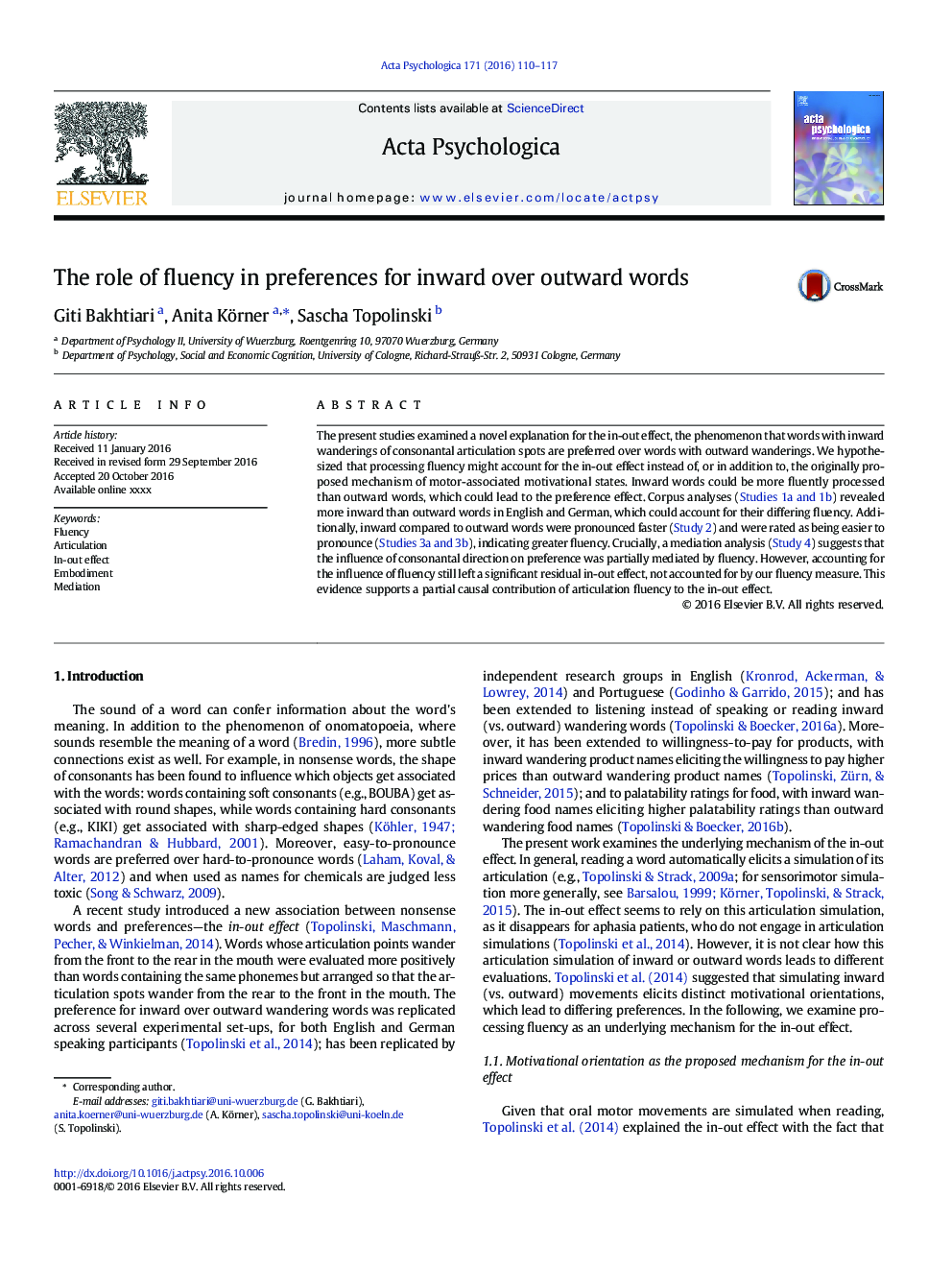| Article ID | Journal | Published Year | Pages | File Type |
|---|---|---|---|---|
| 5040286 | Acta Psychologica | 2016 | 8 Pages |
Abstract
The present studies examined a novel explanation for the in-out effect, the phenomenon that words with inward wanderings of consonantal articulation spots are preferred over words with outward wanderings. We hypothesized that processing fluency might account for the in-out effect instead of, or in addition to, the originally proposed mechanism of motor-associated motivational states. Inward words could be more fluently processed than outward words, which could lead to the preference effect. Corpus analyses (Studies 1a and 1b) revealed more inward than outward words in English and German, which could account for their differing fluency. Additionally, inward compared to outward words were pronounced faster (Study 2) and were rated as being easier to pronounce (Studies 3a and 3b), indicating greater fluency. Crucially, a mediation analysis (Study 4) suggests that the influence of consonantal direction on preference was partially mediated by fluency. However, accounting for the influence of fluency still left a significant residual in-out effect, not accounted for by our fluency measure. This evidence supports a partial causal contribution of articulation fluency to the in-out effect.
Related Topics
Life Sciences
Neuroscience
Cognitive Neuroscience
Authors
Giti Bakhtiari, Anita Körner, Sascha Topolinski,
